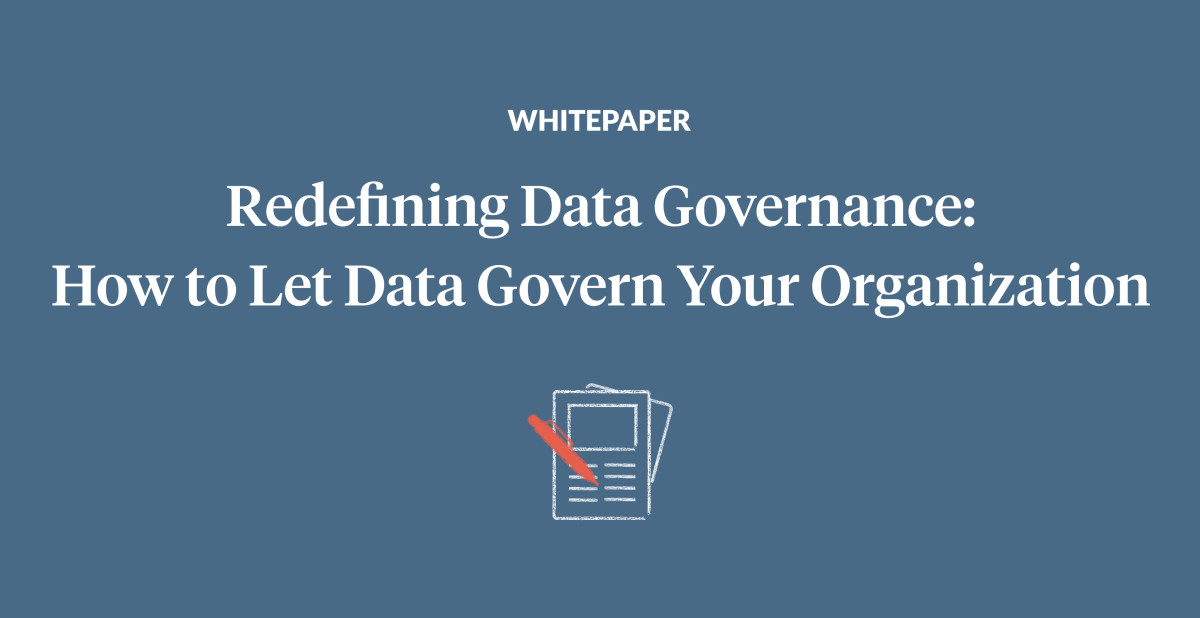Whitepaper
Oct 12, 2021
Redefining Data Governance: How to Let Data Govern Your Organization

A survey of current data governance literature reveals a curious conclusion: the core tenets underpinning its practice remain overwhelmingly anchored to the past. It comes as no surprise then that today’s organizations fail to find success with top-down, traditional data governance.
The core problem is that data governance was originally designed for a different organization: one that collected and leveraged small data from relatively few sources. A high touch, high human intervention approach to governance was appropriate for the organization of old; however, this approach proves to be too slow, too expansive, and too expensive for today’s modern data practice.
Solving the issues inherent with contemporary data governance will require a new perspective to define new practices. This perspective should evolve from a singular focus on people governing data and expand into a philosophy of data governing the organization. Such a fundamental shift in how organizations perceive data governance will lead to new operating procedures, many of which will leverage tools and techniques already in production across data teams today.
A New Way of Data Governance
Redefining data governance calls upon organizations to shift the ownership away from people and onto machines—a necessity driven by the new technological world in which organizations operate.
The shift to intelligent governance solutions is inevitable and will lead to results with far greater accuracy and value generation. However, generating value from these types of solutions will require discipline to truly redefine data governance and not merely perpetuate the status quo.
The following whitepaper outlines a strategic approach for success in redefining data governance. It begins with a reflection on challenges to existing data governance practices before discussing the necessary shifts to successfully implement intelligent governance solutions, including:
Reexamining how organizations should model data flow through connected systems.
Leveraging design thinking to inform data governance initiatives in a user-centric way.
Implementing automated, intelligent solutions to deliver value to end users.

- Data
- Data & Analytics
- Data Governance
- Data Collection
- Data Integrity
- Data Quality
- Analytics
- Analytics & Insights
Download the whitepaper.
Contact Us
Ready to achieve your vision? We're here to help.
We'd love to start a conversation. Fill out the form and we'll connect you with the right person.
Searching for a new career?
View job openings










